Image credit to playstation.com
Path of Exile has been out for quite some time now. That being said, the dungeon delving RPG has earned a new resurgence of players since the game’s recent release on the PlayStation 4. With that in mind, we have crafted a quick guide to the basics of Path of Exile. Check it out below.
Overview
On the surface, Path of Exile looks quite a lot like Blizzard Entertainment’s critically acclaimed Diablo 2. The game features a similar focus on loot and slaying massive hoards of enemies. That being said, Grinding Gear Games’ Path of Exile is truly its own invention.
The game offers quite a few unique features, which will each be discussed here. This guide is designed with new players in mind, as it draws attention to the basics of the title. With that in mind, any new player looking to get in on Path of Exile should definitely check out these quick facts, tips and tricks before jumping into this massive game.
Leagues
One of the first choices a new player will be faced with is choosing which league to play with. Each league is its own game world, almost like a game server. The three primary league types are Standard, Private and Challenge.
Standard League
The default league most players find themselves in is the Standard League, as the name would suggest. There are two variants to the standard league, which are Hardcore and Solo Self-Found. The Hardcore variant adds a somewhat unique twist on permadeath to your play.
Whenever a player within the hardcore variant standard league dies, their character reverts to whatever form the character was in during the normal standard league. Meanwhile, the Solo Self-Found variant prohibits players from trading with each other or from joining together for raiding parties. Consequently, this variant is for players that exclusively want a solo-campaign experience.
Private League
Private leagues must be purchased. However, the owning player will consequently be able to add interesting modifiers to the Path of Exile world to enhance their playing experience. The private league can use similar modifiers to other leagues, such as the unique permadeath feature of the hardcore league variant. Or, the owning player can add in unique modifiers such as increased monster statistics or disabled vendors.
Challenge League
The challenge leagues are temporary, as they roughly change every few months or so. Each challenge league is unique, as each league offers a new set of modifiers to the world of Path of Exile. Challenge leagues are always available in pairs, so players will have two unique challenge leagues available at any given time. After some time, the leagues will be removed and then replaced with new and unique leagues.
When a challenge league ends, a player’s stash and characters are all shipped over to the relevant permanent league that the player was previously using.
When it comes to choosing a league, it is perhaps best to just stick with the standard league until you have a firm grasp of the game’s mechanics. After that, the challenge leagues and standard league variants can be great ways to enhance your play.
Classes
There are seven total classes for the player to choose from. Each class comes equipped with different starting stats and each begins at a different spot on the passive skill tree, which will be used to level your characters. With all of that in mind, choosing a class is not as consequential as in most other RPGs.
The majority of a character’s build comes from gear, making it more a matter of taste when choosing a class. That being said, here is what separates each character from one another.
| Class | Strength | Dexterity | Intelligence |
| Marauder: | 32 | 14 | 14 |
| Ranger: | 14 | 32 | 14 |
| Witch: | 14 | 14 | 32 |
| Duelist: | 23 | 23 | 14 |
| Templar: | 23 | 14 | 23 |
| Shadow: | 14 | 23 | 23 |
| Scion: | 20 | 20 | 20 |
It is important to note that the Scion class is not unlocked until rescuing a certain character during Act 3 of the game’s campaign. The scion is an incredibly flexible class, but is not considered friendly to new players. Consequently, the class has to be unlocked.
Attributes
There are three attributes in Path of Exile. As mentioned before, they are strength, dexterity and intelligence. Every 10 points in each of these ability scores offer various bonuses to the player’s character.
| Ability | Effect Per 10 Points |
| Strength: | Maximum life increases by five points. Melee damage increases by 2%. |
| Dexterity: | Accuracy increases by 20 points. Evasion increases by 2%. |
| Intelligence: | Maximum mana increases by five points. Energy shield increases by 2%. |
Gear within Path of Exile often have ability score minimum requirements. For instance, a hefty battleaxe may demand the player have 132 strength and 45 dexterity in order to wield the weapon. Consequently, it is important to manage your ability scores as you play the game.
Certain items will boost your ability scores. Beyond that, abilities within the passive skill tree will also provide permanent ability bonuses.
Passive Ability Tree
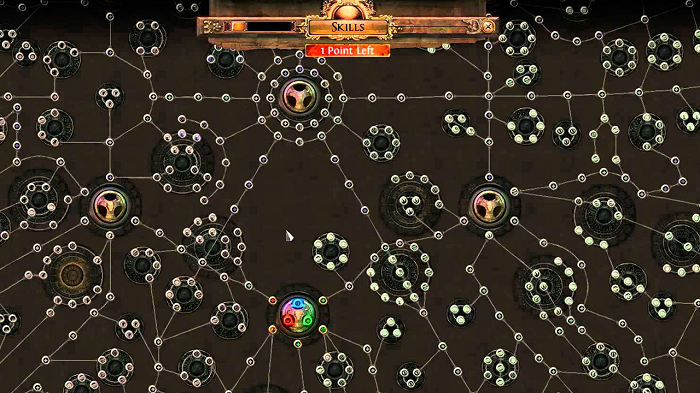
The image above is only a portion of the greatly expanding map that is the passive skill tree. This system is something else that separates Path of Exile from its competition.
Whenever a character gains a level, they also gain a skill point. There are a total 99 skill points that can be gained from leveling. Outside of that, there are also 24 total skill points that can be obtained from quests. However you garner your skill points, the maximum level you can achieve is 100.
Each skill point can be added to this massive map. The smaller dots on the map offer smaller bonuses, such as 10 points to an ability score or a small percentage boost to melee damage. The large dots on the map feature unique abilities that really help your character build stand out. One such choice allows your character to never miss an attack. However, you can also never score a critical hit.
Since the map is so massive and there is no efficient system for completely re-building your character, it is important to plan your skill point allocation out ahead of time. If you want help planning out your skill point allocation, check out the PoE planner here.
It is also important to note that each player can earn “Refund Points” from certain quests. These points can be used to re-allocate individual skill points. Players can also find “Orbs of Regret” within the world, which function similarly. However, it is quite tough to garner many of these resources. This makes it rather unfeasible for re-building characters.
Lastly, the passive skill tree features jewel slots. These open slots do not offer bonuses to your character. Rather, they allow the player an opportunity to socket a powerful, stat boosting jewel within their skill tree.
Gems
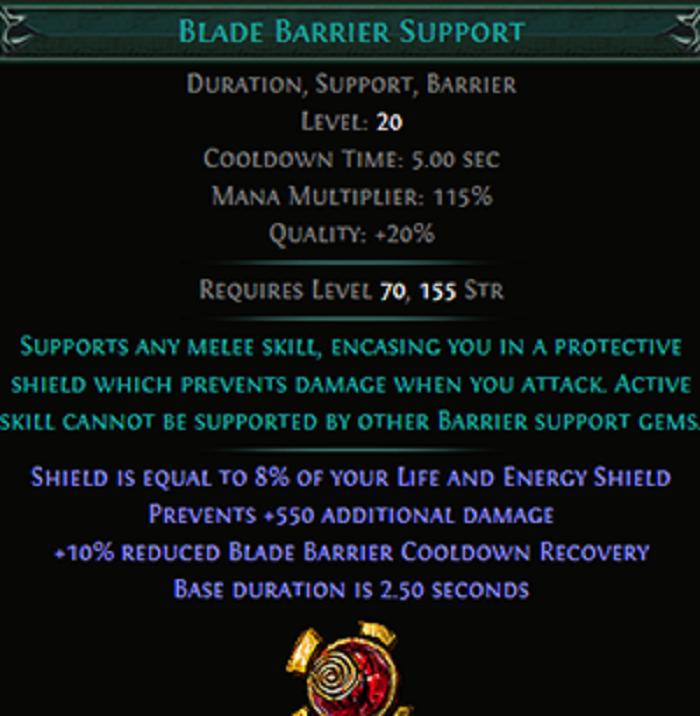
Gems are going to define your character’s active abilities. Gear within Path of Exile often come equipped with sockets. Everything from gloves to greatswords can come equipped with multiple empty sockets.
During your adventures, you will come across quite a bit of loot. Among them, gems are common finds. Gems provide active skills for players to utilize within the game. One gem may offer a neat lighting bolt ability, while another gem may allow the player the ability to swing a two-hand weapon in all directions.
Gems must be placed within the empty sockets of equipped items in order to be utilized. Each gem is color coated to match their color coated item sockets.
Beyond that, there are support gems which do not offer active abilities. Rather, these gems boost active ability skill gems in unique ways. One gem may increase a melee ability’s damage, while another may increase a lightning ability’s area of effect.
Discerning which gems best fit your play style is just part of the fun when it comes to Path of Exile.
Currency
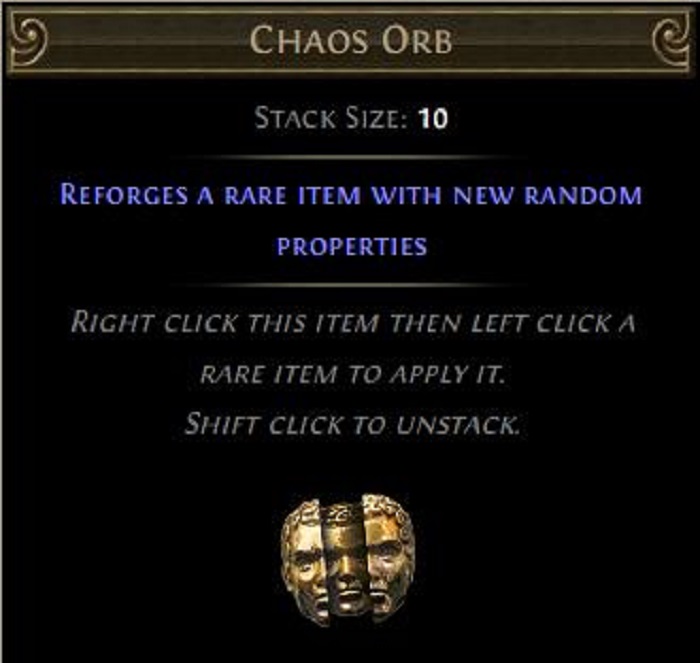
There is no gold in Path of Exile. Rather than simply use a money currency, Path of Exile is based on trade. That being said, there is a list of items that have since become a form of currency.
On top of finding gems, weapons and armor during your looting, you will also come across certain usable items. These range from Scrolls of Wisdom to Chaos Orbs. Scrolls of Wisdom can be used to identify magic items. However, they are also considered the lowest form of currency within the game.
Meanwhile, Chaos Orbs can randomize the modifiers on magical gear. The Chaos Orb is the standard currency of Path of Exile. That being said, there are many other items that are used for trade. You can check out the relative value of these items at poe.ninja.
Most players hoard their currency items during their first playthrough of Path of Exile’s campaign. It is quite common for players to build multiple characters before truly landing on a favorite. Luckily, players can store all of their gear in stashes throughout the game. These stashes can be shared across characters.
These currency resources can be traded with NPC vendors during the game’s campaign. However, the items can also be traded with other players via the in-game marketplace.
Last Minute Tips and Tricks
Now that you have a grasp of the basics of Path of Exile, here are some quick tips and tricks to help you throughout your playing experience.
- Unlike most RPGs, you do not gain experience for completing quests. Rather, your character gains experience from defeating enemies. That being said, you will have to fight enemies near your level in order to gain experience. Enemies too low of level or too high of level will not provide experience.
- Install a loot filter. Loot filters help draw the player’s eye to useful gear. During the early stages of Path of Exile, a loot filter may seem unnecessary. However, the ground will be littered with loot during high-level gameplay, making loot filters a must. You can pick up a loot filter here.
- You can lose experience. During campaign Acts 1-5, there is no penalty for dying. However, near the end of Act 5, a hidden penalty system will be enacted. Every time you die, you will now lose 5% of your experience. At the end of Act 10, you will lose 10% of your experience for each death. While you cannot lose levels through this penalty system, the lost experience can still be quite detrimental at higher levels.

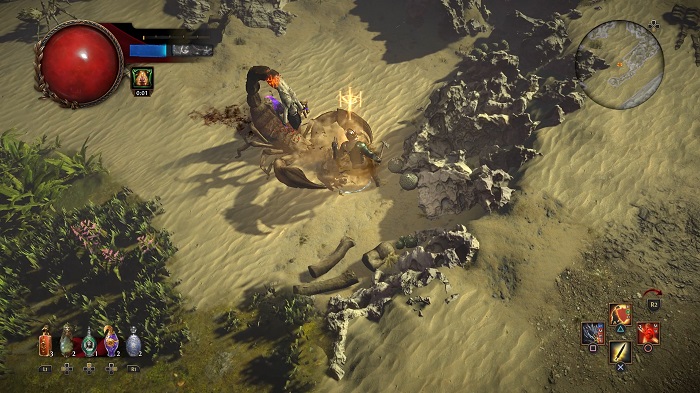
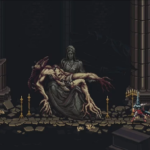

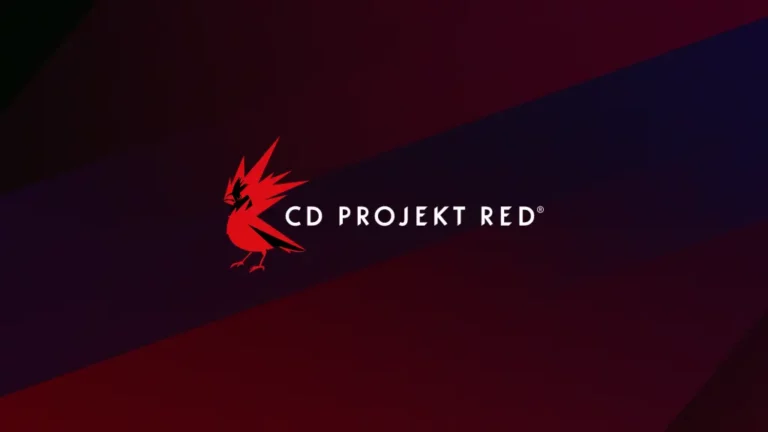


Comments are closed.